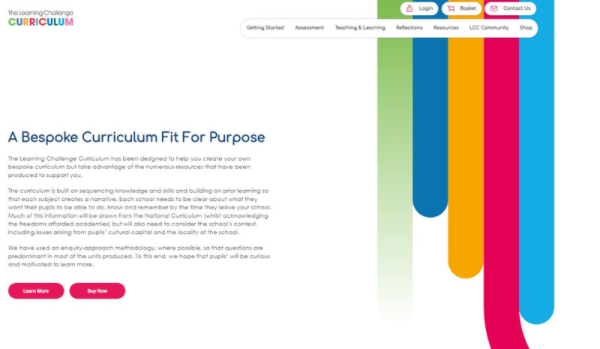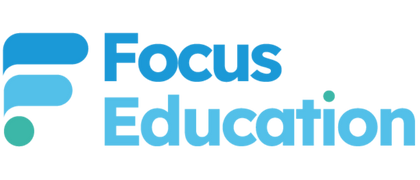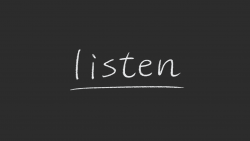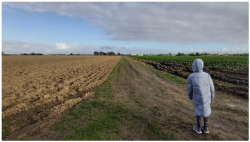
The Learning Challenge Curriculum is undergoing some changes…
The focus on the quality of education remains Ofsted’s priority when judging if a school is still at least good. If a school wishes to secure a strong ‘good’ outcome then they have to appreciate the interrelationship between the curriculum intent, implementation, and impact. The new learning challenge curriculum, therefore, put greater emphasis on what pupils need to know and remember by the end of each phase of education. In making these revisions we wanted to consider what knowledge we felt important for pupils to know and remember before they left each of the key stages.
Naturally, the national curriculum does provide guidance. However, the national curriculum should form only a part of the whole curriculum. We have attempted to take account of, amongst other aspects, locality, and pupils’ cultural capital. To this end, we want your locality to focus heavily on the history and geography curricula. We have endeavored to create a narrative for each subject with knowledge being built on progressively as pupils move through the school. This knowledge needs to take account of ‘disciplinary knowledge’ as well as ‘substantive knowledge’ so that pupils are supported not just to ‘know and remember’ but also ‘to do.’
Where possible, we have also considered interleaving opportunities, with subjects like history and geography being sequenced so that pupils can build on prior learning. For example, pupils studying ancient Egypt in Year 4 history could then follow to look at deserts, including modern Egypt, in Year 5. This cannot be achieved throughout the curriculum, but we have attempted to look for opportunities across all subjects nonetheless, especially interleaving art and design technology with science, history, and geography.
A focus on pedagogical principles is at the heart of the learning challenge curriculum’s implementation. We have ensured that the time spent on the intent considers the delivery. Our profession is currently benefitting from ongoing research into aspects such as ‘cognitive load’ and ‘metacognition’. We have therefore given this full consideration when it comes to the implementation.
Prior Knowledge
For example, each unit of learning starts with igniting pupils’ prior knowledge. This is identified as the ‘link it’ stage, where pupils are prompted to consider links within the subject, links to other subjects, or links to themselves. We now know enough about cognitive load to recognise the potential benefits this will have on long-term retention. Once established, we move to the ‘learn it’ stage where the composite learning is broken into manageable components, which includes the introduction of new and relevant vocabulary. This will be even stronger if staff work at improving further their personal subject knowledge by researching the subject matter about to be delivered. Importantly, having taken time to ensure ‘what’ pupils should learn and remember, we now give equal consideration to ‘how’ pupils will know and remember key knowledge.
Learn it!
During the ‘learn it’ phase, we have built-in checkpoints, which is called the ‘check in’ phase. This helps pupils and staff review the learning to date within each unit. It will also allow opportunities for staff to recognise gaps in pupils’ knowledge and to enable them to do something about them. In this way rapid intervention could be available at timely stages through the ‘learn it’ stage, thereby avoiding the issue of pupils falling behind.
Show it!
At the end of a sequence of learning, we have created a ‘show it’ phase which is beneficial in enabling pupils to showcase their learning. This could be achieved at an individual or group level. The aim is to get pupils to present an aspect of their learning to the rest of the class. In this way, it is supporting their cultural capital by providing opportunities for pupils to present information to others. The ‘show it’ phase could be in the form of a power point presentation or even a short, filmed presentation. Importantly, there is an encouragement for pupils to come up with innovative ideas.
Know it!
Finally, we have the ‘know it’ phase which effectively checks if the learning has stuck. This would normally be after the unit of learning has been concluded and could be later, or even much later, in the school year. There are several ways in which ‘retrieval tasks’ could be implemented with many schools and academies favouring, short activities which aim to engage pupils immediately. The diagram below attempts to capture the distinct phases I have outlined.

Basically, the changes make the learning challenge curriculum more cohesive and gives greater consideration to ‘how’ it will be delivered. We have ensured that the link between the curriculum intent and implementation is much stronger. At the same time, we have attempted to provide leaders with the evidence that the curriculum is having the desired impact on pupils’ knowledge and achievements. This is done by heightening the expectations of what should be seen in pupils’ books. This is because we know that one of the most important pieces of evidence in relation to pupils’ achievements comes from scrutinising pupils’ books and then having discussions with pupils themselves. If the structure outlined in the learning challenge curriculum is followed, pupils’ books should provide compelling evidence that the quality of education is strong in your school.
Clive is a former headteacher and inspector, having inspected over 200 schools. His school gained a National Curriculum award and was featured in the Times Educational Supplement, one of three schools recognised for their quality practice.
He was awarded an OBE for his services to education in 2007.






